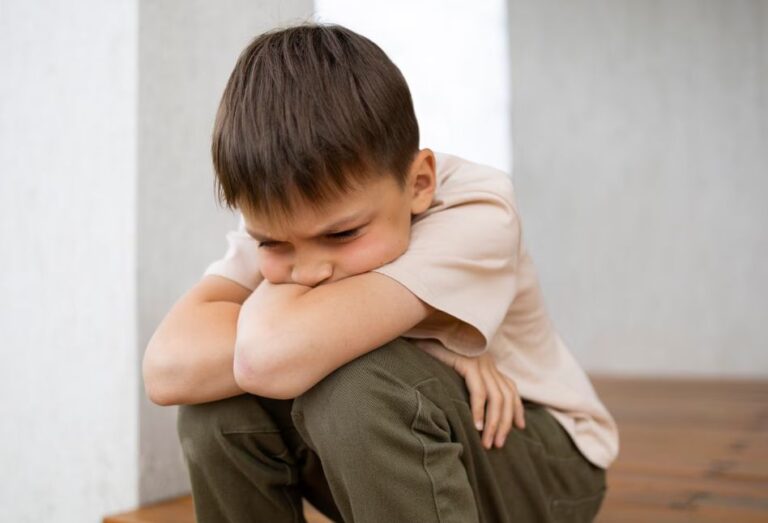Failure is an unavoidable aspect of life that each of us confronts at some stage. Whether in personal relationships, work endeavors, or the academic sphere, these setbacks often shape our perspectives and mold our resilience. The very word “failure” can evoke a profound sense of unease, but it is especially daunting for students navigating the pressures of academia.
Within the hallowed halls of the school, students are constantly evaluated, graded, and pushed to achieve. When they fall short, the weight of these expectations can be crushing. For many students, their academic journey is filled with the pursuit of perfection—a race to ace every test, master every topic, and never falter.
Ironically, amidst these pressures, it’s not uncommon for students to consider shortcuts. They might think, “If only someone could write my papers for me,” or seek other avenues to evade the potential of failure. But sidestepping the process doesn’t provide the lessons that challenges inherently bring.
Emotional Responses to Failure
Falling short of one’s goals, especially in an academic setting, triggers a cascade of emotional reactions. This is often the first response. A student might find it hard to believe that they didn’t perform up to their own or others’ expectations.
Once the initial shock subsides, self-criticism might set in. Questions like, “Why didn’t I study harder?” or “How could I have been so careless?” begin to dominate their thoughts. Persistent failures or a particularly devastating setback can lead a student to question their abilities, intelligence, or worth. They might feel they’re not cut out for the subject or school in general.
If not addressed, the danger of a spiraling negative self-image can compound, leading to a diminished sense of self-worth, further affecting their motivation and confidence in future endeavors.
The Positive Side of Failure
While the initial sting of failure is undoubtedly painful, it’s essential to shift our perspective and view these setbacks as learning experiences. Often, failures serve as a mirror, reflecting areas of our lives that require attention and growth. By analyzing our shortcomings, we can gain insights that success might never provide.
Consider the journeys of prominent figures like Thomas Edison or Michael Jordan. Edison’s countless unsuccessful attempts to invent the light bulb were not just about the times he failed; they were lessons guiding him toward the right solution.
Similarly, Michael Jordan’s celebrated basketball career is as much about the shots he missed as the ones he made. Both icons used their failures as stepping stones, refining their approaches each time they faced setbacks.
For students, each failure in school can become an opportunity. An incorrect answer in a test is a chance to understand a concept better, a low grade on a project provides feedback on where improvements can be made, and struggling in a subject can spark conversations about different learning techniques and resources.
Strategies to Overcome and Deal with School Failures
While it’s crucial to understand the underlying reasons for failure, the path to redemption lies in proactive measures to address and rectify these shortcomings. Accepting responsibility for our mistakes, rather than deflecting or dwelling on them, is the first step towards progress. It’s about recognizing where we went wrong and then taking actionable steps to make amends.
Feedback is a powerful tool in this journey. Engaging with educators to gain clarity on areas of improvement is invaluable. Constructive feedback provides a roadmap, highlighting the areas that need attention and suggesting ways to strengthen understanding.
Moreover, embracing a structured approach to learning can work wonders. Establishing a consistent study routine, actively participating in classes, or collaborating with peers in study groups can foster better comprehension and retention of material. For those who find certain topics challenging, seeking additional resources or tutoring can make all the difference.
Importance of a Support System
Human beings are inherently social creatures, and our journey through challenges, including academic failures, is often eased with the support of others. A strong support system consisting of family, friends, educators, and peers can provide both emotional cushioning and pragmatic solutions.
Sharing one’s feelings and concerns with family or friends often leads to a sense of relief. Just the act of verbalizing concerns can bring clarity and reduce the burden. Moreover, they can offer a different perspective, shedding light on aspects we might have overlooked.
Peers, too, play a pivotal role. They not only provide camaraderie but also share their own experiences, which can be both enlightening and comforting. Knowing that one isn’t alone in their struggles can be a source of immense solace.
Educators, being experienced and having witnessed countless students navigate the tumultuous journey of academics, can offer both guidance and mentorship. Their insights, suggestions, and support often illuminate the path forward.
In essence, while the weight of failure can feel isolating, it’s crucial to remember that there’s a community ready to uplift, guide, and support. Embracing this community can transform the experience of failure from a period of desolation to one of growth and rejuvenation.
Learning Resilience and Bouncing Back
At the heart of every challenge lies the opportunity to foster resilience. Resilience isn’t just about recovery; it’s about growing stronger through adversity. In the academic realm, this means not letting failures define one’s abilities or self-worth but using them as reference points for personal growth.
Understanding the concept of the “growth mindset,” as posited by psychologist Carol Dweck, can be transformative for students. A growth mindset celebrates effort over innate ability and sees challenges, even failures, as opportunities to learn and develop.
By adopting this mindset, students can begin to view their struggles in school not as confirmations of inability but as signposts guiding them toward areas that need further attention and effort.
In practical terms, bouncing back from academic failures is about taking actionable steps. Revisiting challenging topics, seeking additional help, or altering study techniques are all part of this process. Equally vital is nurturing one’s mental and emotional well-being, ensuring that setbacks don’t lead to damaging self-perceptions.
Preventing Future Failures
It’s essential to recognize that while failures offer learning opportunities, the objective remains to minimize them moving forward. By continuously reflecting on one’s performance, seeking timely feedback, and staying proactive in seeking help when challenges arise, students can better position themselves for success.
Maintaining a balance is also crucial. Engaging in extracurricular activities, ensuring adequate rest, and setting aside time for recreation can rejuvenate the mind, offering a fresh perspective when tackling academic tasks. A well-rounded approach to life ensures that students aren’t just reacting to challenges but are proactively building a foundation for holistic success.
Final Thoughts
Throughout our academic journeys, various services and tools come to our aid. For instance, a student working on their final project might turn to the best dissertation writing service to ensure they present their research effectively. However, while external resources can be invaluable, the true essence of navigating academic challenges lies in cultivating internal resilience and an adaptive mindset.
The path through academia is rarely linear. It’s punctuated with highs and lows, achievements and setbacks. Yet, each experience, including the failures, contributes to our growth. By changing our perspective on failure, embracing support, and taking proactive measures, we transform these setbacks into stepping stones toward greater understanding and success.














